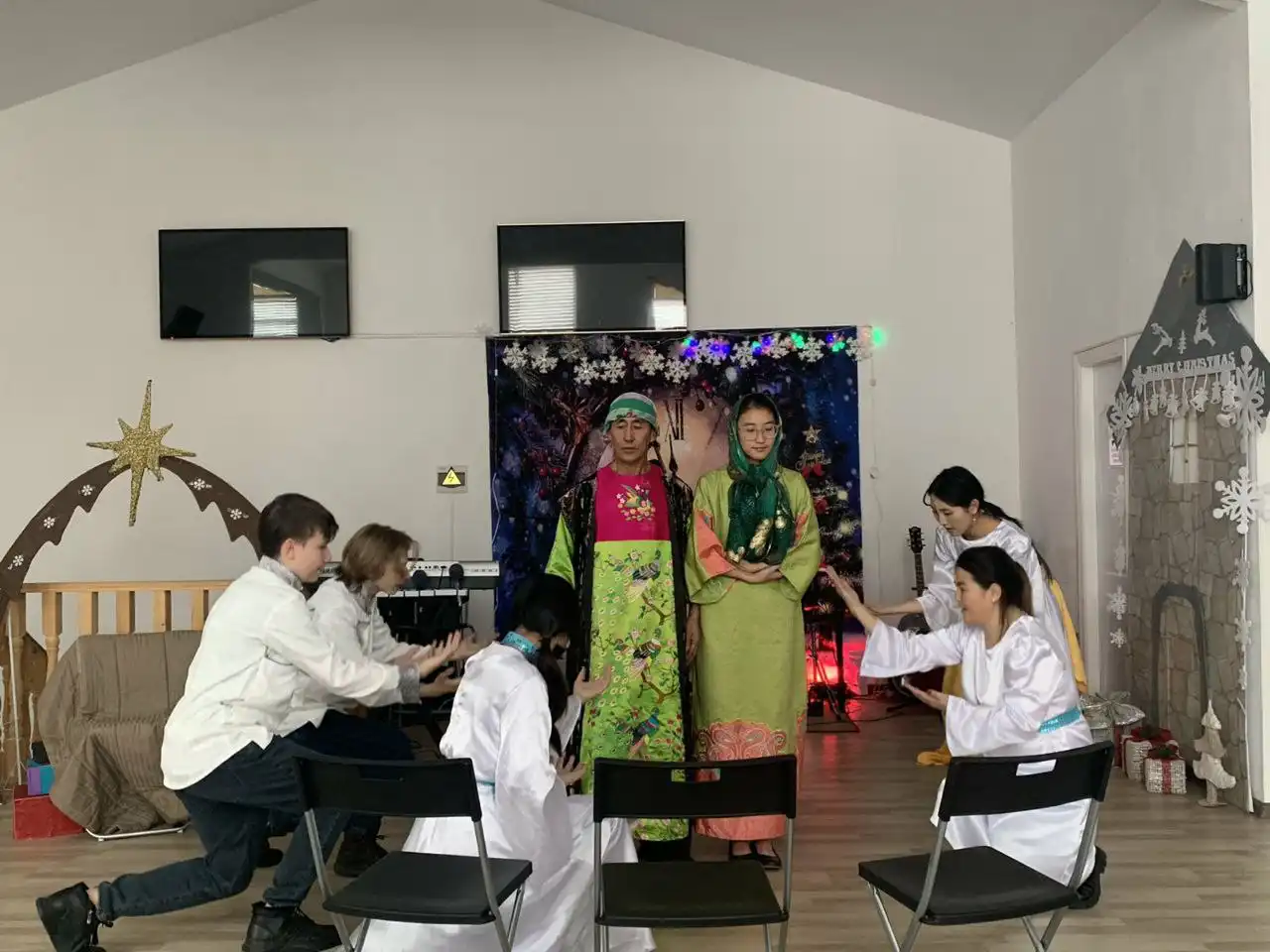Missionaries Share About Christmas in Africa and Asia
27 December 2022
It is quietly snowing in front of the lights, snowy sidewalks in a park you feel like walking unceasingly, imagining that you are about to sip hot cocoa as a compensation for the frozen nose.
This is time for presents and special best wishes, hoping for better like in any other season.
This is time for miracles and anticipation of long-cherished dreams… What if it will work this time?
The atmosphere of Christmas has been well known to everyone since childhood. Age is not that important as all people wait for this special time every year.
The Christmas season is long-awaited not only in our “temperate latitude”, but also in African and Asian countries, which have their highlights instead of snow.
This is what the article written based on accounts of CITA missionaries and partners who serve in Ethiopia, India, Cambodia and Mongolia says.
2015 Christmas in Ethiopia
What? Isn’t it 2023?
The Ethiopians have their special calendar, and last September the country celebrated its 2015. Christmas, which in the Amharic language is called Gena, is celebrated there on January 7.
On the eve of the birth of Jesus, streets in the countries of the African Horn are filled with merchants and buyers of sheep and hens. This kind of fuss means that it will be possible to taste holiday food.
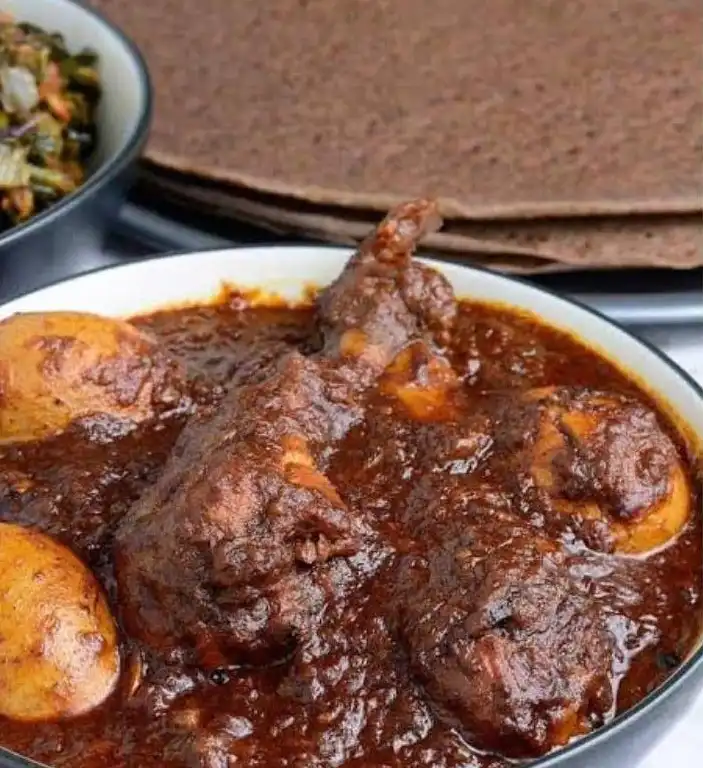
According to a CITA minister Erubal Mulatu, Christmas for the Ethiopians is the time for families to get together at a table with traditional meals such as dor wot, kitfo, azifa.

Coffee ceremony is an integral part of the celebration. This drink is served along with the traditional Ethiopian bread Difo Dabo sliced by the oldest family member, who blesses all others.
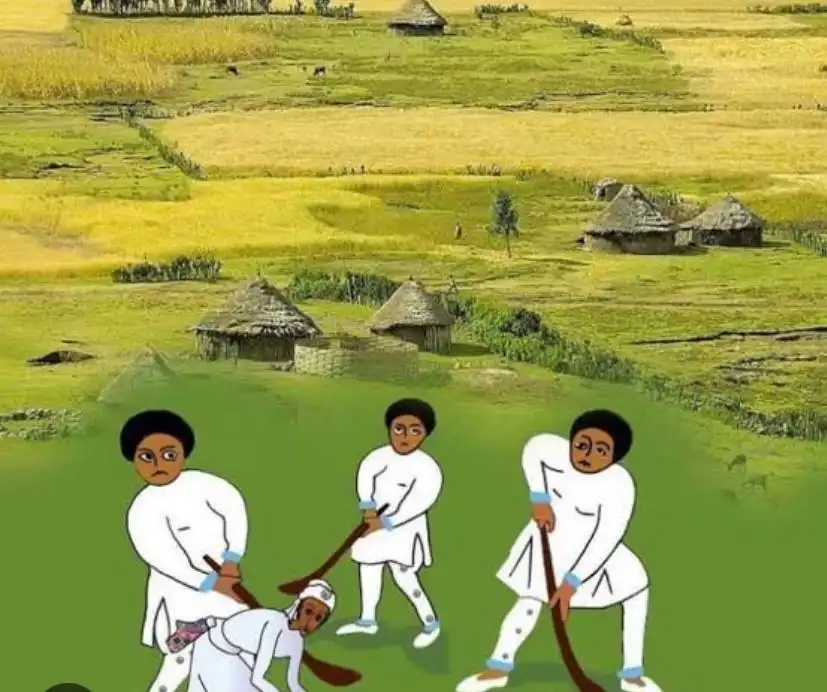
On Christmas Day, the Ethiopians play their traditional game Ye’Gena Chevata, which looks like grass hockey.
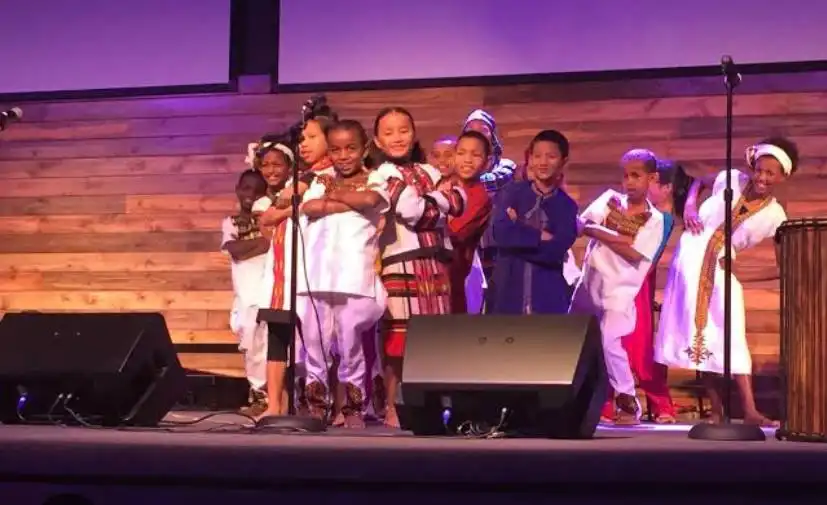
Christian churches, prior to a celebratory service, solemnly decorate their houses and prepare a special program.
On Christmas, children draw utmost attention. They sing, perform skits they prepare for a month. A pastor shares about the true meaning of Christmas. In the evening, all Christian people light candles and pray. In some churches, all believers do all-night worship and study God’s Word.
India. Christmas is the time for mass outreach events
During the Christmas season, this 80% hindu country is especially loyal to Christianity. Authorities do not prevent anyone from freely and publicly speaking about Christ in may states.
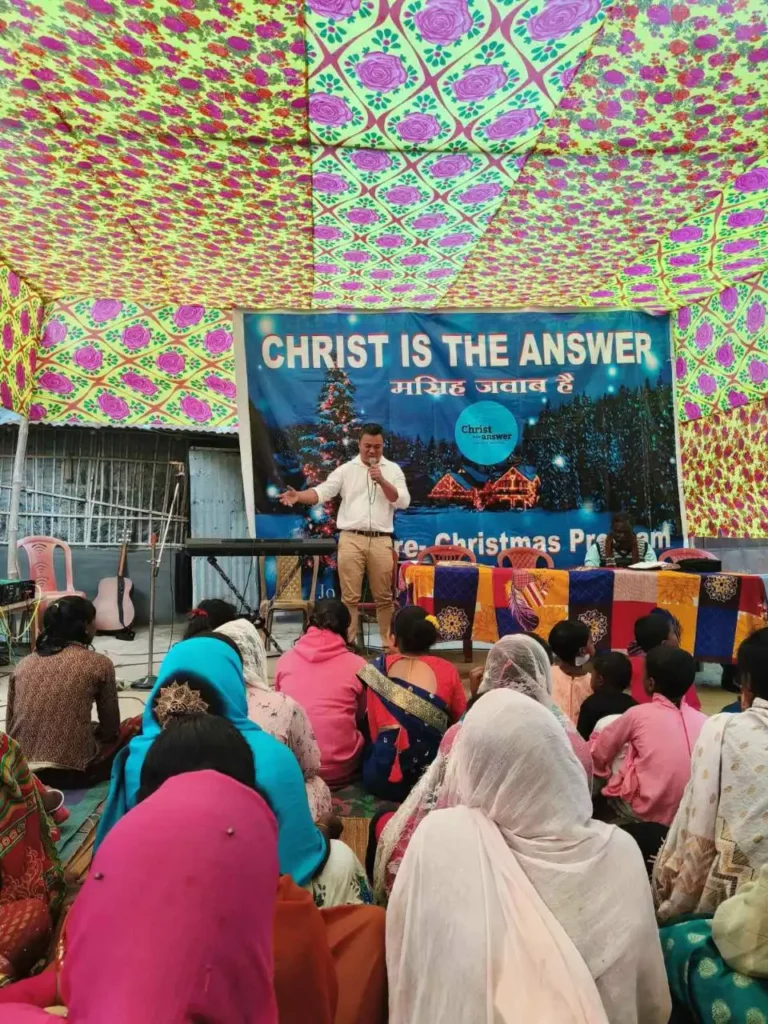
So, Christians invite friends, neighbors, acquaintances, relatives, hindu people, hold celebrations, which include dancing, songs, sermons, thematic skits and treats. They prepare for this almost for a year.
As far as holiday meals on Christmas, missionaries say that “rice is the staff of life.” Rice can be found in all meals. These are only spices which change.

Anyway, holiday meals cooked by the Indian people include sel roti which is made from… rice flour.

And poori which is a deeply fried bread from whole-wheat flour. It is served with a local dessert… from rice and halva.
CITA missionaries Angelina and Danylo say that the Hindu people willingly visit Christian events where they can eat and spend time together. Brothers and sisters in India also distribute evangelistic brochures, leaflets and calendars. As a matter of fact, Christmas is a real chance to reach out to hundreds of people to share the Good News with them.
Cambodia: Christmas for less than 1% of the population?
“Do they celebrate Christmas in Cambodia? Of course not. Cambodia is a Buddhist country, and this day is neither a public holiday nor a holiday. It is an ordinary working day, no different from any other. Just like in European countries they don’t celebrate the birthday of Siddhartha Gautama (Buddha’s real name)”, – shared missionary Yevhen Yevva.
So why is it that only less than 1% of the country’s residents are Christians involved in Christmas in Cambodia?
Buddhist converts and missionaries use Christmas time for the Annunciation, because there are many people in the country who have never heard the name of Jesus.
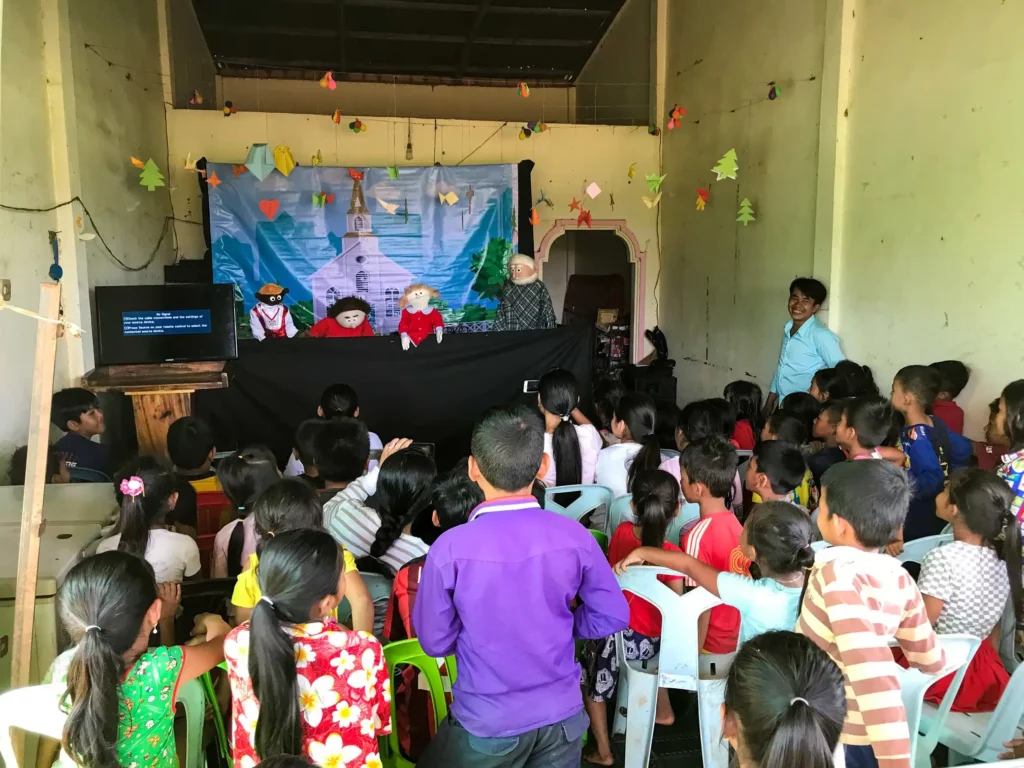
Our brothers and sisters preach with the help of a puppet theater, whose Christmas productions have received a great response from the local population, especially children.
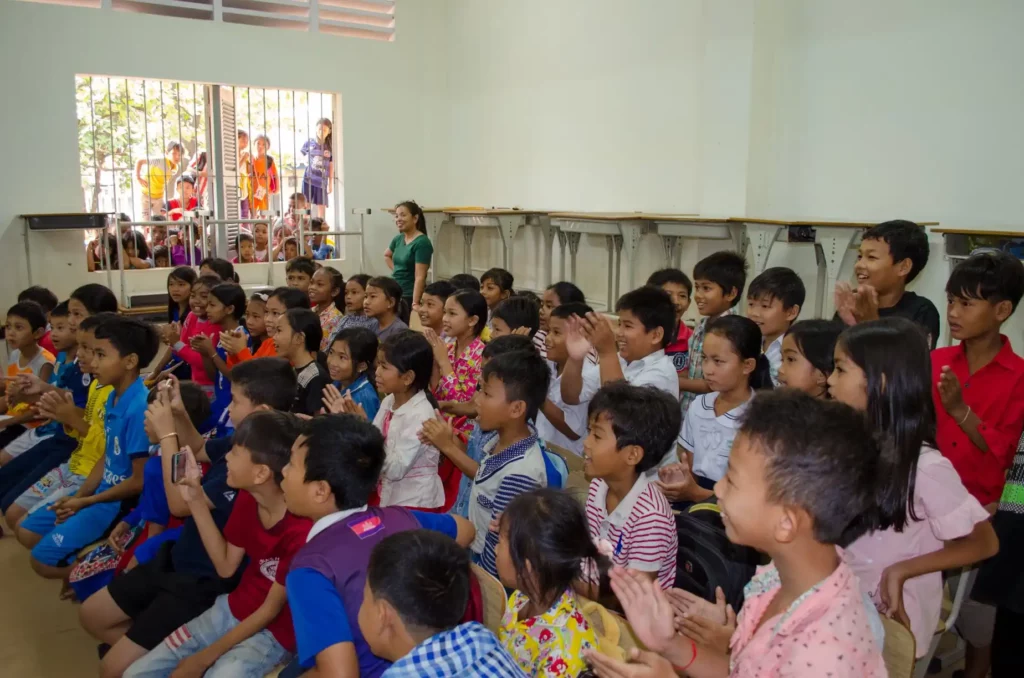
Many residents in Cambodia have not seen such a genre as puppet theater before.
In the first year of the puppet service, about a thousand people heard the Good News, and the children received Christmas presents.
Local Christians extend the date of Christmas by several weeks. They prefer not to be tied to dates: when they decide, then they will celebrate. And they do it in order to visit other churches.
After the festive service, it is customary to have a joint meal. Curry (emphasis on the second syllable) is traditionally prepared – a dish similar to a thick soup.
Mongolia: Christmas or Tsagan Sar?
In this Asian country, religious freedom became tangible only after the collapse of the USSR: missionaries, not only Christian from the Western world, but also Buddhist and Muslim, came to Mongolia.
After the democrats came to power in the country, Buddhist temples began to revive, Lama institutes (courses on Tibetan Buddhism) appeared. Mongols became interested in Western culture. Yes, Merry Christmas picked up the youth of Mongolia, without going into its essence, and for whom it became nothing more than fun with bells and toy deer on the tree, and pizza and chicken on the table.
Christians in Mongolia began to celebrate Christmas in 1992, and only a year earlier the New Testament was translated into Mongolian and printed.
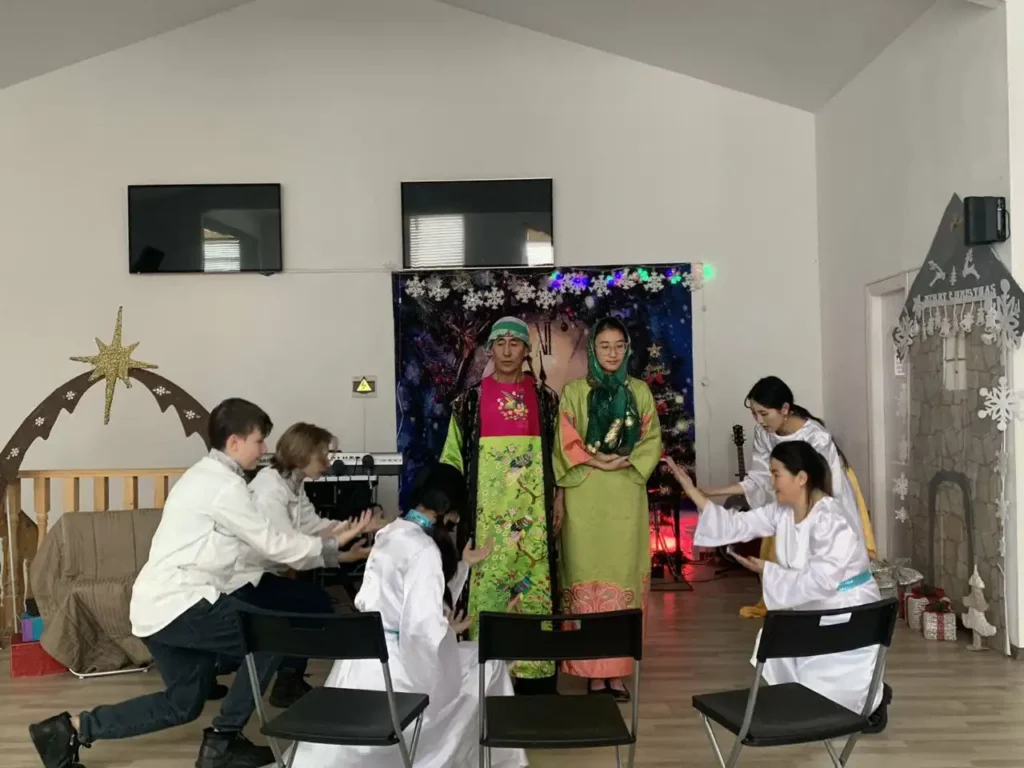
Christian churches usually prepare a bright holiday and see this day as an opportunity to invite non-church people to a festive show: songs, plays, dances and to tell a little about Christ.
According to missionaries Ruslan and Svitlana Andriichenko, recently it is possible to attend festive performances of Christian performers – their concerts are held at a professional level.
At the celebration of Christmas, it is customary to dress in the best. The people of God adhere to secular attributes in their clothes: ladies often come to Christmas evening in evening dresses with rhinestones.
In the past, the social-communist country, well trained to celebrate the only holiday that replaced Christmas – the new year, has recently begun to return to its national characteristics.
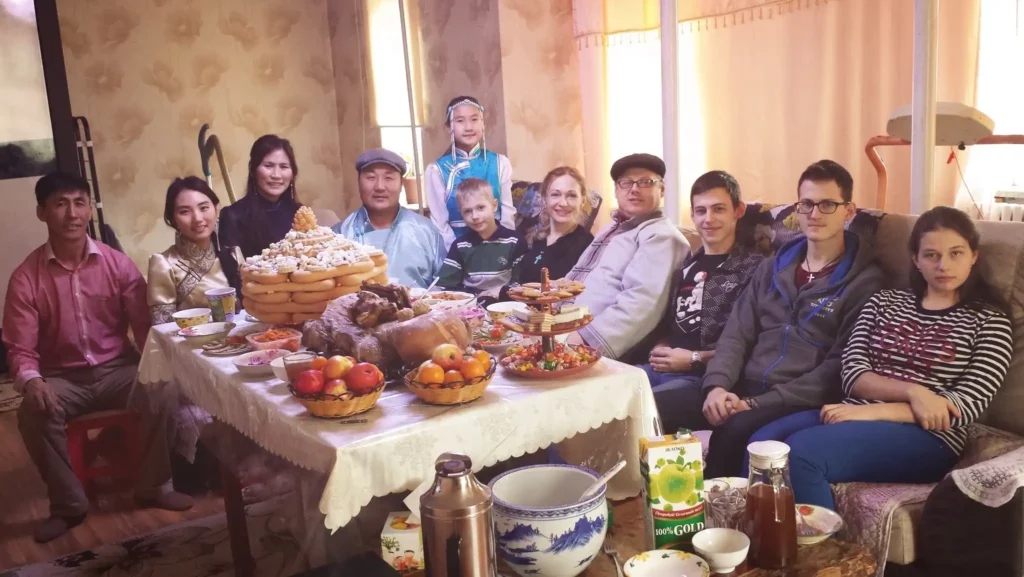
Mongolians celebrate their holiday associated with the new year – Tsagan sar – “white moon” and means “everything new”. It coincides with the Chinese calendar, so the celebration falls on late February-March.
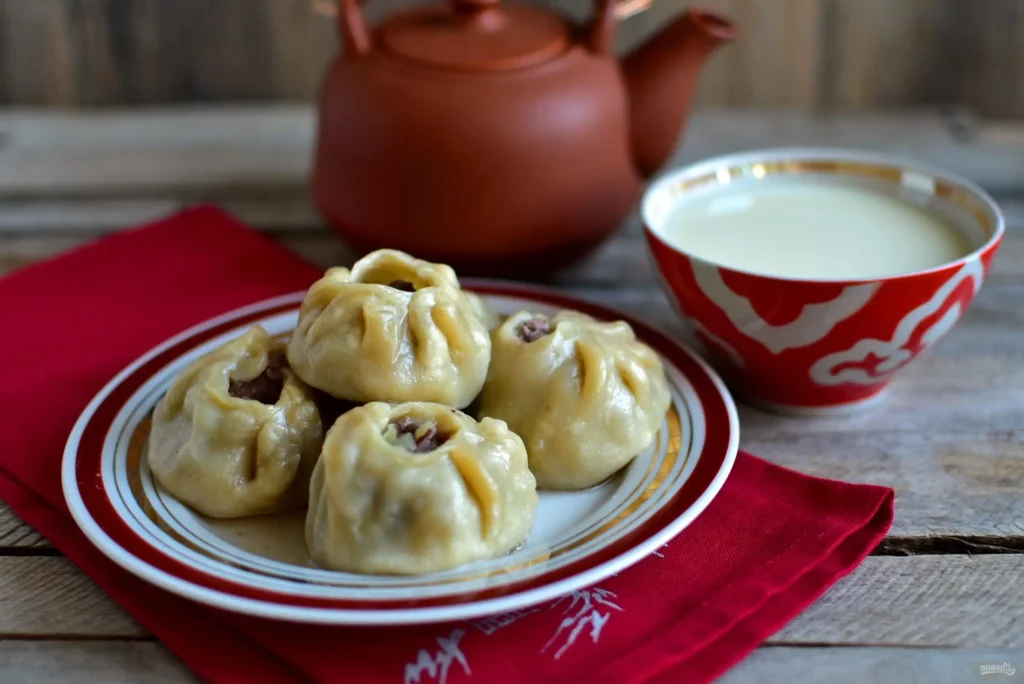
On the first day, it is customary to serve lamb and goat, dress in national costumes, and visit each other after a family feast.
No matter how someone celebrates Christmas in their culture, the main thing is to remember Who was born and for what the Son was given to humanity, who came to earth as a Baby, and to whom we owe His righteousness, joy and peace in us.
Merry Christmas!
The article was prepared by the CITA press center.
